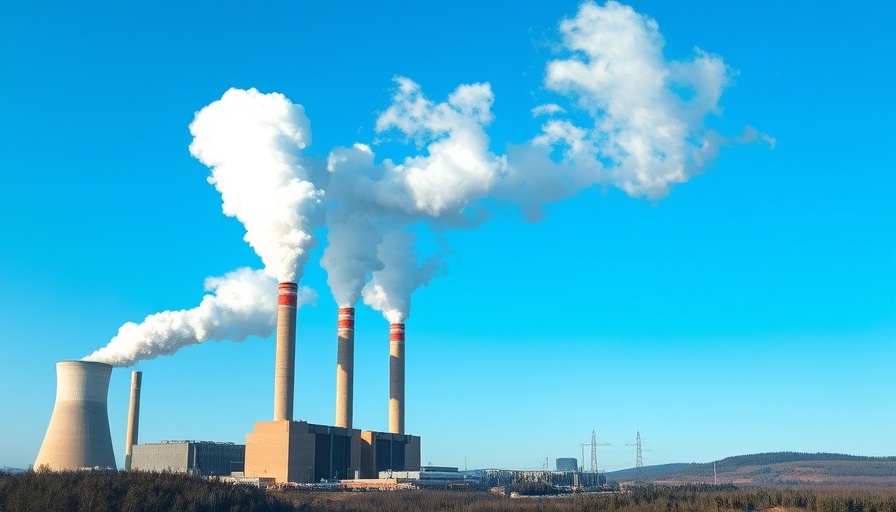
The EPA's Shift in Power Plant Regulations: What It Means
In a controversial move, the US Environmental Protection Agency (EPA) has taken steps to roll back emissions standards for power plants, which are recognized as the second-largest source of CO2 emissions in the country. This shift suggests a significant departure from decades of environmental protection efforts. EPA administrator Lee Zeldin's remarks, suggesting prior administrations were 'suffocating' economic growth to protect the environment, indicate a troubling trend that prioritizes fossil fuel production over climate action.
Historical Context: Emissions Regulations Developed Over Decades
Historically, emissions regulations have served as crucial measures to combat air pollution and climate change. The Biden administration had strengthened these rules last year, aiming for a 90% reduction in emissions from coal- and gas-fired power plants, primarily through the use of carbon capture technologies. Now, the EPA argues that because US power sector emissions constitute only 3% of global figures, they do not significantly contribute to global greenhouse gas levels. However, the logic behind this stance is under scrutiny, as the power generation sector accounts for 25% of domestic emissions, making it one of the primary offenders.
Why Is This Change Happening Now?
This rollback comes on the heels of alarming statistics from the National Oceanic and Atmospheric Administration, which reported record high concentrations of CO2 in the atmosphere. Despite this, Zeldin maintained that the surge in data center demands necessitated a more lenient regulatory stance toward fossil fuel usage. This move has sparked outrage among environmental advocates who argue it contradicts the pressing need for more robust measures to address climate change.
Impact on Human Health: Toxic Emissions and Public Welfare
The EPA's consideration also includes revisions to the Mercury and Air Toxics Standards (MATS). Originally put in place to mitigate toxic emissions from power plants, these regulations have significantly reduced mercury levels, yet coal-fired plants still remain the largest source of mercury emissions in the US. Lifting these standards could reverse progress made over the past decade, posing severe health risks to communities near fossil fuel power stations.
Counterarguments: The Economic Narrative
Proponents of the rollback point to an economic narrative, insisting that stringent regulations harm job markets and economic growth. They contend that by easing restrictions, the power sector can innovate and adapt more freely to changing energy demands. However, this argument has been challenged by experts like Ryan Maher, who claim that neglecting environmental responsibilities today could lead to far more significant economic costs tomorrow as climate change impacts escalate.
Future Predictions: Trends Toward Fossil Fuel Reliance
If the EPA’s proposals are finalized, experts predict a potential resurgence of coal use, undermining years of efforts toward cleaner energy. The global landscape, particularly in developing countries where coal consumption is rising, complicates the narrative - we can’t ignore US contributions to global emissions while other nations ramp up their own. Environmental scientists warn that if the US power sector were a country, it would rank as the sixth-largest emitter globally, highlighting the considerable responsibility that remains with American policymakers.
Actionable Insights: The Role of Citizens and Consumers
Consumers are integral to facilitating change in the energy sector. Advocating for renewable energy sources, supporting green initiatives, and holding power companies accountable for their emissions can make an impact. Moreover, technological advancements, particularly in sustainable energy solutions, are emerging rapidly. Understanding these options helps citizens align their energy consumption with their values.
Conclusion: What Can We Do?
The proposed changes by the EPA signify a pivotal moment in the battle against climate change, one that pits economic interests against environmental necessity. As citizens, it is paramount to stay informed and engaged with the decision-making processes that dictate environmental quality. Supporting clean energy initiatives, urging policymakers for stricter regulations, and investing in emerging technologies can make a real difference. As we consider the balance between economic growth and environmental sustainability, every voice matters, and collective action is our strongest ally.
 Add Row
Add Row  Add
Add 




Write A Comment